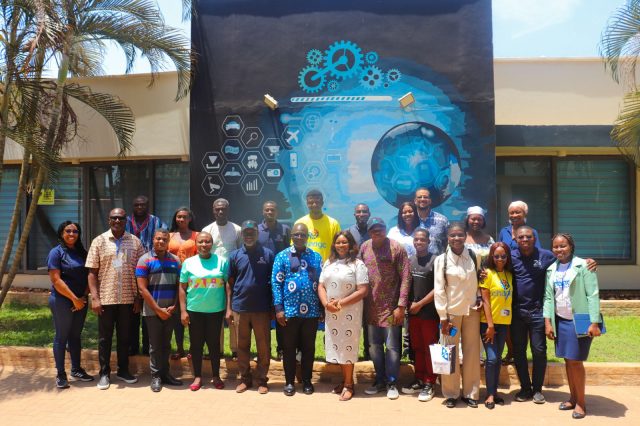Romeo Bugyei, CEO of Accra-based IT Consortium, has warned that artificial intelligence-driven misinformation poses significant risks to national security and democratic processes, urging coordinated action between governments, media, and businesses.
Speaking at a World Press Freedom Day event in Ghana hosted by the UK-Ghana Chamber of Commerce (UKGCC) and the Institute of Financial and Economic Journalists (IFEJ), Bugyei stressed that underfunded news organizations struggle to combat AI-generated disinformation, leaving nations vulnerable to economically destabilizing falsehoods.
“When journalists rely on free AI tools to fight AI threats, they face a losing battle,” Bugyei said. “Those with resources can exploit this gap to harm economies and national security undetected.” He proposed public-private partnerships to fund advanced verification tools and training, while challenging journalists to proactively learn AI’s capabilities: “Waiting for instruction means falling behind.”
The workshop highlighted AI’s dual-edged impact on media. While tools like ChatGPT streamline tasks such as data analysis and language translation, risks include algorithmic bias skewing public discourse, deepfakes eroding trust, and automated surveillance compromising source protection. Jerry Agudogo, a senior IT Consortium engineer, noted that AI’s ability to distort reality threatens the concept of truth itself. “Legislation is critical to regulate surveillance and content algorithms,” he said, advocating for AI-aided investigative journalism to counter disinformation.
UKGCC representatives acknowledged concerns but emphasized AI’s potential to strengthen reporting if ethically harnessed. The chamber reaffirmed support for IT Consortium’s initiatives and its partnership with IFEJ, which since 2021 has aimed to bridge media and business sectors. IFEJ President Rayborn Bulley urged attendees to apply workshop insights, particularly in safeguarding financial data integrity.
The rise of generative AI has intensified pressure on traditional media, with tech giants absorbing advertising revenue and AI summarization tools diverting traffic from original reporting. Critics argue this undermines press sustainability and fosters reliance on unverified, algorithmically amplified content.
Established in 2016 with British and Ghanaian government backing, the UKGCC has become a pivotal trade facilitator between the two nations. Its collaboration with IFEJ reflects growing recognition of media’s role in democratic resilience amid technological disruption.
As AI evolves, the event underscored a shared reality: no single sector can mitigate its risks alone. While solutions remain uncertain, participants agreed that equipping journalists with resources, ethical guardrails, and cross-sector alliances is vital to preserving factual discourse. The challenge lies in balancing innovation with accountability, ensuring AI serves as a tool for transparency rather than a weapon against it.
Send your news stories to newsghana101@gmail.com
Follow News Ghana on Google News

















